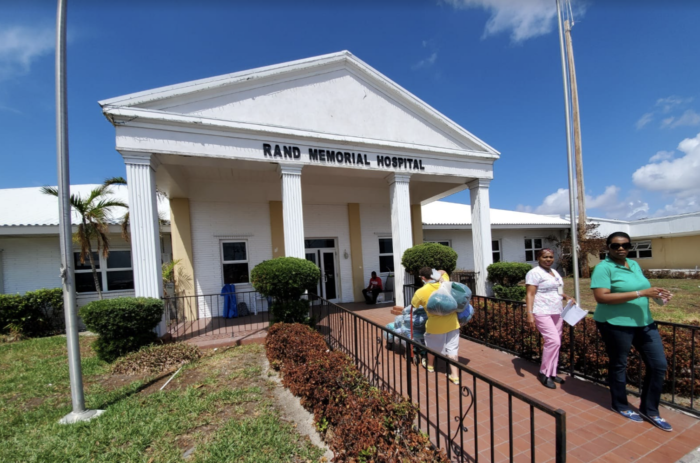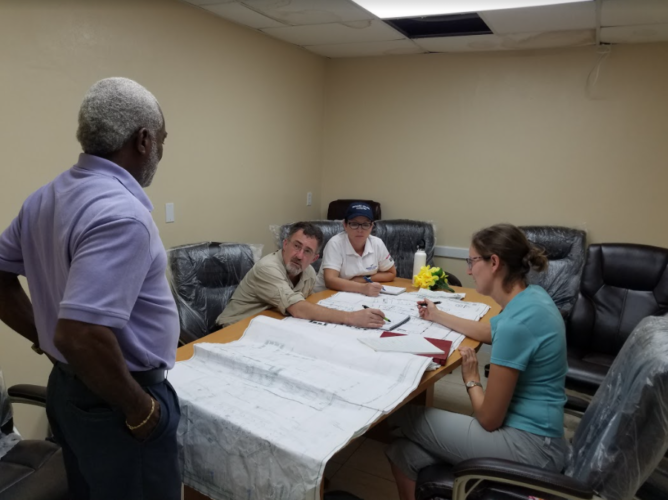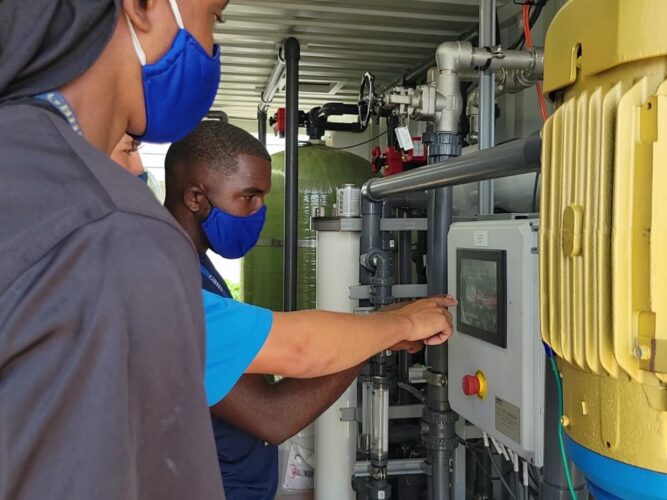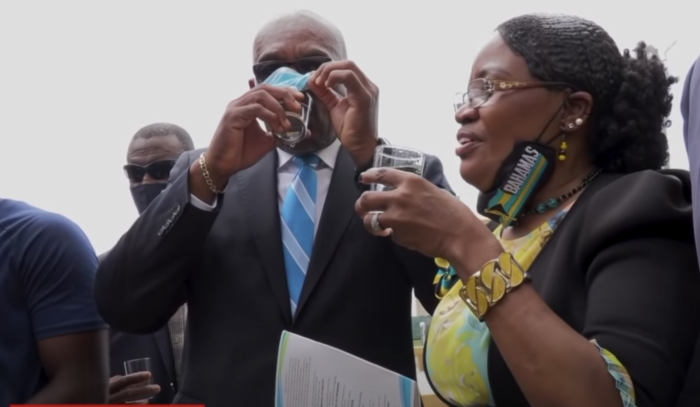Water is easy to take for granted when you have it. You can’t stop thinking about it when you don’t — and it can be a matter of life and death.
On September 1, 2019, Hurricane Dorian ripped through the Bahamas as a Category 5 and then sat over the islands for three full days, battering with wind and rain. The storm brought in massive tidal surges across Grand Bahama and Abaco, flooding the freshwater aquifers with saltwater and cutting off access to potable water for thousands. Even now, more than a year and a half after the storm, the salinity levels from the tap are unsafe to drink throughout much of the impacted islands.

Thirty hours after Dorian, we were on the ground in Grand Bahama, meeting immediate needs and conducting damage assessments, specifically at the Rand Memorial Hospital in Freeport where we had seen videos of hospital staff evacuating patients through the floodwaters during the storm. Many staff hadn’t been home since before the storm even though their homes and belongings were also severely impacted. They were obviously weary, but driven by a sense of purpose.
It became clear that we needed to find a way to support the hospital and staff in the short-term, so SBP began flying in relief supplies, water and scrubs. As we won rapport with the local staff and Public Hospitals Authority (PHA) over the ensuing days, weeks and months, we began shifting conversations from immediate needs to how we could support the long-term strategic goals of the PHA to better serve impacted communities across the Bahamas.
As the frequency and intensity of storms continues to rise, we don’t want to simply rebuild communities after a disaster like Dorian, we want to make them resilient so that they’re better positioned for the future. The Bahamas is a collection of 700 islands and remote cays, some accessible only by boat. We needed to ensure the hospital and clinics would always have full access to clean water for sterilization, sanitation and reserves on hand for patients and staff to drink and take home.

With funding from the CDC Foundation, we partnered with Water Mission, a fellow non-profit that implements clean water initiatives in developing countries, particularly in areas that are underserved. Their solutions are customized for each community, which is what our approach to the Bahamas needed since we were serving several healthcare facilities in communities spread across multiple islands: A combination water treatment and storage system programs at several healthcare facilities equipped with slightly oversized production and storage capabilities so that they could easily meet their current demand for water and could also supply the surrounding community in cases of emergency.
This was no small undertaking. By strategically adding these capabilities across the islands, we reduce the time it takes for government or international relief agencies to procure reverse osmosis equipment, ship it to the impacted areas and begin to implement water purification programs. Now, the infrastructure is already there.

It was critical that the PHA staff was equipped to maintain the program long-term. SBP and Water Mission is training 15 facilities workers and three specialized technicians from within the PHA. These new “water doctors” will perform water quality testing, monitor equipment and perform scheduled maintenance to ensure water production volume and quality meet the needs of each facility.

Despite a global pandemic during the program build, we completed our work in April. It’s our hope that this project serves as an example of what a strategic public-private partnership can achieve and that the disaster response sector keeps trending in this direction so that long-term resilience is baked into every response.
Andy Stofleth is the Executive Director of SBP Bahamas.

